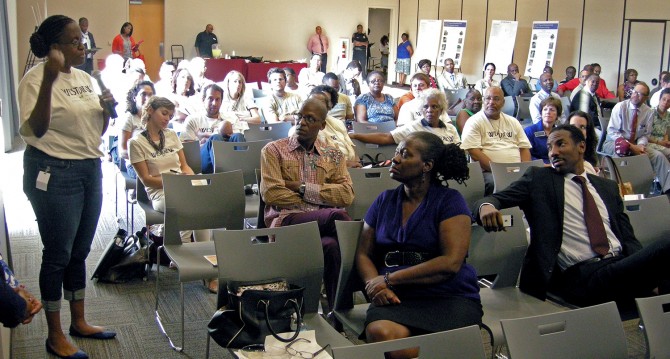On March 17, 2015 the public will be asked to vote on the proposed Infrastructure Bond Referendum. Leading up to the vote there have been multiple public information meetings where citizens were able to provide input and feedback on the proposed projects. Westview residents were very vocal about their demands, and the City of Atlanta listened by putting Westview’s top priority projects on the list. Please consider voting “YES” on March 17, 2015 to approve the proposed infrastructure bond. #RenewATL
Westview Projects:
- Cascade Road/Avenue: The project scope may include milling and repaving, sidewalk & bus stop improvements; bicycle lanes and median/pedestrian refuge islands along Cascade Ave/Road between Delowe Road and Abernathy Boulevard. Estimate: $3,040,000
- R. D. Abernathy Blvd: Complete Street improvements inclusive of curbing, sidewalk and pedestrian improvements from Cascade Avenue to Westview Drive. Resurfacing will be completed by GDOT (separate budget). Estimate: $1,500,000
- Beecher Street: Resurfacing from Donnelly Avenue to Ferris Street. Estimate: $456,300
- R. D. Abernathy/Georgia Avenue: Upgrades along major thoroughfares to optimize signal operations and communications network to ATCC. Estimate: $612,700
Frequently Asked Questions:
Where do I go to vote?
Please go to your regular voter polling location (i.e. where you are also registered to vote for elections such as President and Congress). You can find this information via www.mvp.sos.ga.gov/.
What is a Bond Referendum?
A bond referendum is a vote to authorize the city to issue bonds to generate revenue for a specific project. If voters approve the referendum, the City of Atlanta will issue bonds up to $250
million to fund infrastructure projects including repair and construction of complete streets projects, sidewalks, bridges, and curb ramps. Bonds are considered one of the safest funding
tools available to the City of Atlanta. The City will repay the bonds at a low interest rate over a period of 30 years. Because of the City’s good credit rating and strong financial management
practices, the infrastructure bonds will not raise property taxes.
The full cost of fixing our infrastructure is more than $1 billion. Why is the City only asking for $250 million in bonds?
The City’s infrastructure backlog will require more than $1 billion to fully address. Mayor Reed and the City Council are asking Atlanta voters to approve $250 million in the bond vote to address one quarter of the problem now.
This $250 million investment will be the single-largest investment in the City’s infrastructure in more than a decade, and will result in clear and measurable improvements in the look, feel, and
experience of Atlanta for residents and visitors alike.
The City has developed a comprehensive funding strategy to complete the remaining infrastructure projects. Other sources of funding include increasing capital budgets in the City’s
annual budget, sales of assets, federal, state, and philanthropic grants, improving operational efficiency that results in new savings, corporate and private donations, and energy saving
performance contract opportunities.
How are the projects prioritized?
The City, through a public engagement and voting process, determined criteria through which to weigh various projects. Key criteria included:
– Infrastructure sustainability (number of years past lifecycle)
– Provide for pedestrian and bike facilities (construct or upgrade bike/pedestrian facilities)
– Promote public health and safety (bike lanes, pedestrian lighting, ADA improvements)
– Leverage Federal/State funds (80% or more)
– Connection to transit (proximity to rail and bus routes)
– Green infrastructure innovation (recycled materials, rain gardens, etc.)
– Preservation of neighborhoods (connectivity to schools or historic venues)
– Connection to other projects (proximity to other projects)
– Part of Connect Atlanta or other COA plans/reports
– Part of Neighborhood/Development adopted plan
What types of projects will be funded through the bonds?
Projects funded by the infrastructure bonds are broken down into two categories that correspond to the two questions on the ballot. Question 1 refers to transportation-related
projects and Question 2 refers to facilities-related projects.
Transportation projects include replacing street lights to make your neighborhood safer, repairing and replacing outdated bridges to connect communities, synchronizing traffic lights to
make your commute easier and reduce congestion, installing more bike lanes and complete streets projects for more transportation options, and building and repairing sidewalks, curbs,
and ADA ramps for better mobility.
Facilities projects include upgrading police and fire stations and recreation centers across the City.
How are projects chosen?
The City is now in its third and final round of public information meetings on the infrastructure vote to educate Atlanta residents and gather feedback. An interactive map of proposed projects
has been online for more than a year, with more than 600 people submitting comments and questions. The City is taking all public comments into consideration and combining this feedback with expert recommendations. Mayor Reed, the Atlanta City Council, and our staff at the Department of Public Works want to ensure Atlanta residents get the biggest bang for their buck, choosing projects that will make the biggest impact quickly.
When will the list be final? How do I give my opinion?
After more than a year of gathering input, the list is almost complete. You can still offer feedback at any public information meeting, through social media, or by contacting us through email or by phone. The City urges people to tell their City Council member which projects they care about most. City Council will vote to finalize a list sometime in March or April 2015.
How are projects allocated throughout the City? Will some neighborhoods have more funding than others?
Infrastructure projects are classified as city-wide or local projects. The Department of Public Works is working with the City Council to make sure funds are distributed in an equitable,
transparent manner across the entire City.
Will taxes be increased to pay this debt?
No. From March to June 2014, the Mayor‘s “Blue Ribbon Commission on Waste & Efficiency in Government” was charged with identifying cost-saving strategies in City government to enable
the City of Atlanta make these necessary investments in City infrastructure without raising property taxes. The City will begin implementing the initiatives that have been identified by the
Mayor’s Waste & Efficiency Commission.
Recurring savings and new revenues:
– Property taxes from new construction
– Sale of surplus assets
– Maintenance and operating savings from sold assets
– New revenue initiatives
– Savings from internal operations improvements
– Risk management & safety improvements
– Performance driven budgeting
What type of bonds will be issued?
General Obligation (GO) bonds with ad-valorem property tax revenues as pledged security for the payment debt service.
How will the bonds be sold?
The bonds will be sold as a negotiated transaction and will involve the selection of a team of financial institutions to participate as underwriters.
Which firms will be issuing the bonds?
At this time the City has not selected any firm/s that will participate in the bond transaction.
When will the bonds be sold?
The bonds are expected to be issued after the March 17, 2015 voter referendum.
When will the City start paying the debt?
It is expected that the first interest payment will occur on January 1, 2016, and the first principal will occur on July 1, 2016.
When will the debt be paid?
The debt is expected to be paid within 30 years (July 1, 2045).
What will be the interest rate on the bonds?
The bonds will bear a fixed interest rate, and as of January 23, 2014 projections, it is estimated that the interest rate on the bonds would be approximately 5.4% (subject to change).
How much debt service will be paid each year?
As of January 2014 projections, it is estimated that the annual debt payments will be approximately $16.5 million per year (subject to change).
How much will it cost to issue the bonds?
It is estimated that the total cost to issue the bonds will be between $3 – $5 million.
If the bond is voted on in March 2015, when will the funds be available and projects be scheduled to begin?
It is estimated that the proceeds from the bonds sale will be received by July 1, 2015 for projects financing. Once the project list is finalized, a timeline for implementation will be
developed. We expect to start projects immediately upon authorization from Finance to expend the funds.
What are the City’s G.O ratings?
The City’s current ratings are:
– Moody’s Investor Service Aa2 with a stable outlook
– S & P AA with a stable outlook
***S & P rating upgrade of 3 notches (June 27, 2014) from an “A” rating with a stable outlook
Are water and sewer projects included in the infrastructure bonds?
No. Water projects are paid for through water rates and fees, grants, and loans.
Will contracts go to women and minority-owned firms?
Thirty-five percent of City contracts will be with women and minority-owned firms. Federal and state projects may differ.
Additional Information
http://www.atlantaga.gov/index.aspx?page=1145
Inquiries related to the Proposed Infrastructure Bond may be sent to:
City of Atlanta
Department of Public Works
Office of Transportation Capital Projects.
ATTN: Rodney Givens, P.E.,
55 Trinity Avenue, SW, Suite 4500
Atlanta, GA 30303
Phone: (404) 330-6739
Email: infrastructure@atlantaga.gov

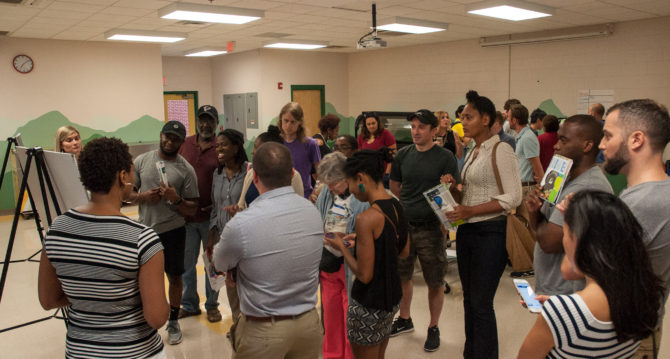
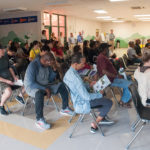
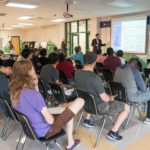

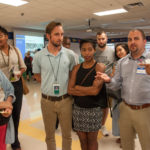
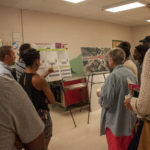
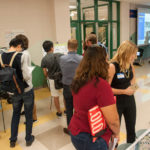
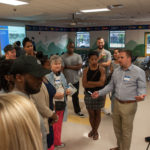
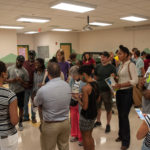
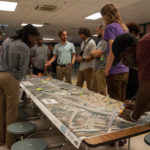
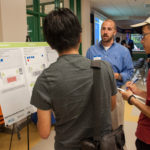
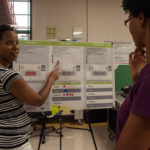
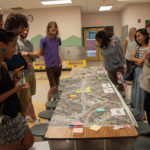
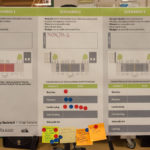
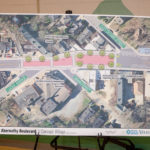
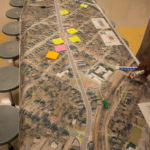
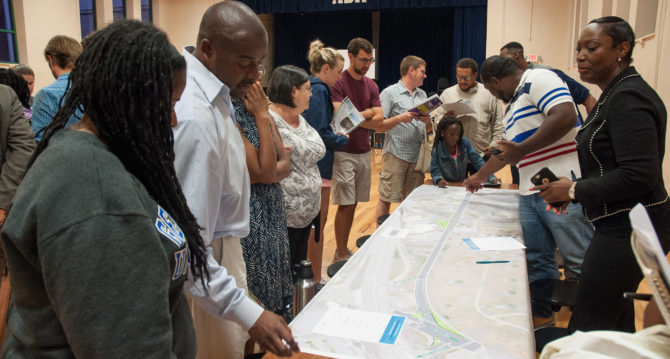
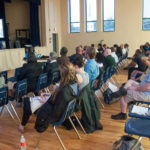


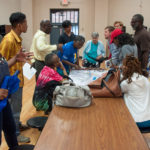
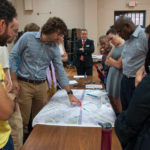
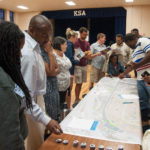
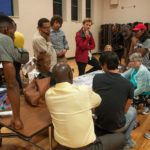
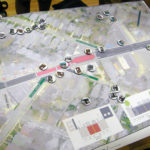
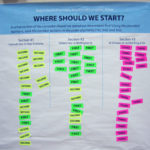
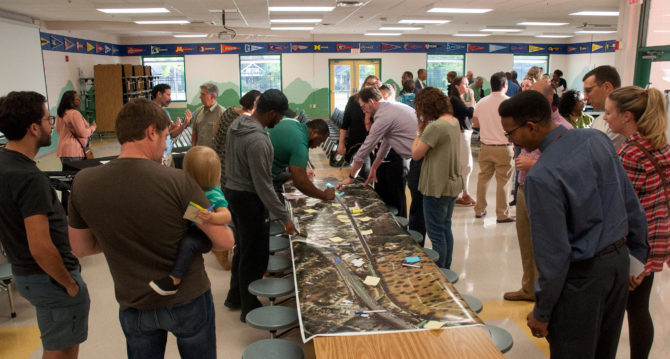
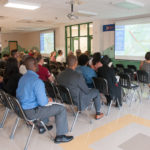
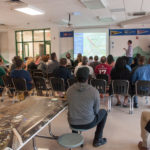
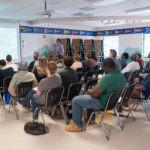


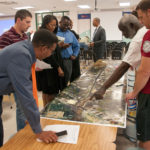

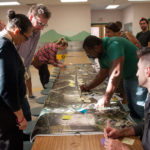




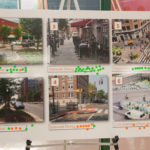
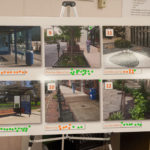
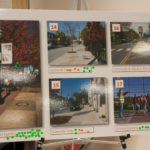
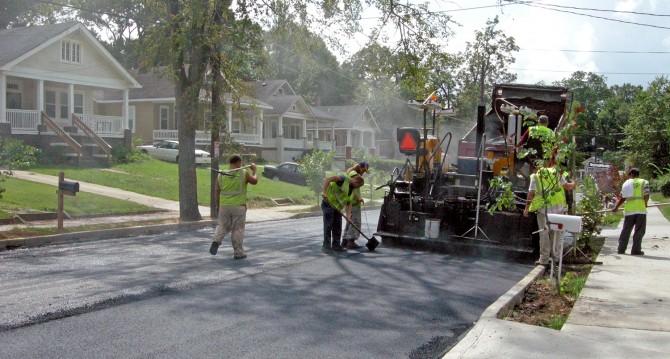
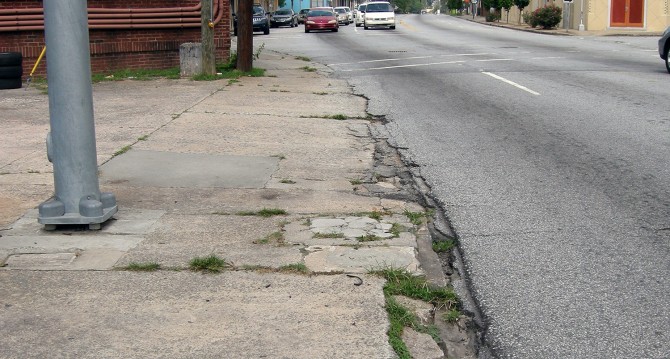
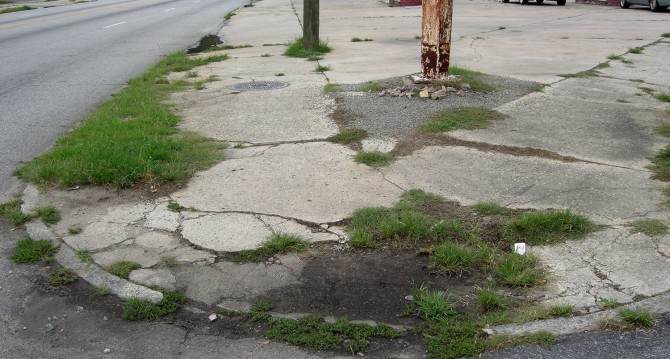
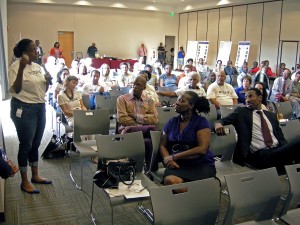 Mayor Kasim Reed has made a commitment to address the city’s pressing infrastructure challenges. Today, the city faces an infrastructure backlog of more than $900 million. In order to begin improving our city’s roads, bridges, sidewalks and expand our green spaces, the city is proposing a bond infrastructure referendum to pay for these repairs and improvements. The Departments of Public Works, Planning and Community Development, in coordination with the Atlanta City Council, are seeking public input to determine priority and criteria for project selection for the bond.
Mayor Kasim Reed has made a commitment to address the city’s pressing infrastructure challenges. Today, the city faces an infrastructure backlog of more than $900 million. In order to begin improving our city’s roads, bridges, sidewalks and expand our green spaces, the city is proposing a bond infrastructure referendum to pay for these repairs and improvements. The Departments of Public Works, Planning and Community Development, in coordination with the Atlanta City Council, are seeking public input to determine priority and criteria for project selection for the bond.